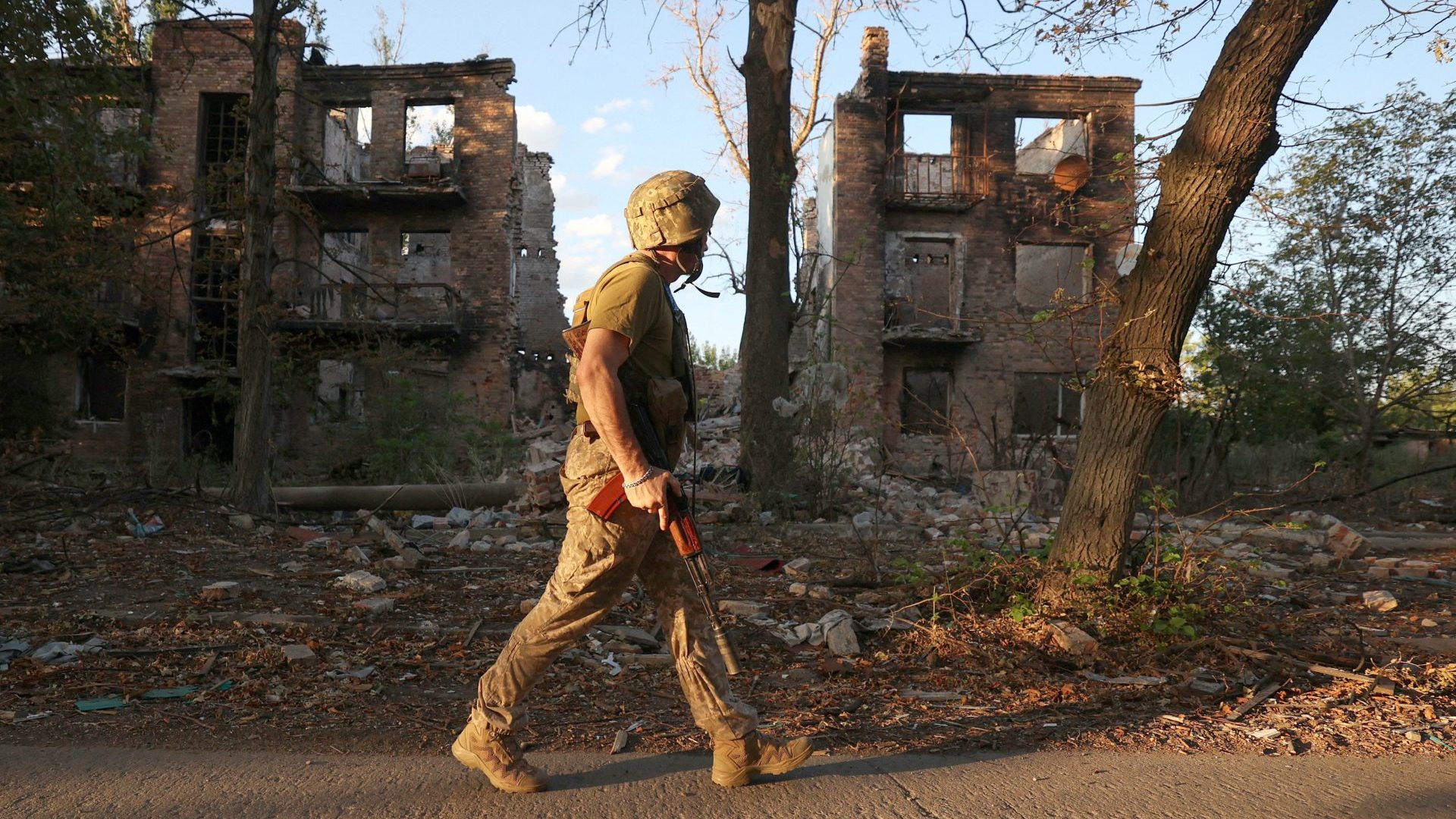“This is what defeat looks like… This doesn’t need to be defeat. But, at the moment, it damn well feels like it.”
Wednesday, August 18, 2021: these were the angry words of the Conservative MP, Tom Tugendhat – then chair of the foreign affairs select committee and a former serving Royal Marines officer in both Afghanistan and Iraq – in the emergency Commons debate on the retreat from Kabul.
Tugendhat’s furious verdict sprang inexorably to mind last week as news broke of the superinjunction that had kept secret the leak in February 2022 of the names of 18,714 Afghan asylum seekers. The tawdry amateurism of the withdrawal that preceded the data breach, the pattern of institutional neglect and the appalling human cost: it all came flooding back.
Almost four years have passed since this ignominious chapter in the geopolitical history of the West: the Taliban reclaiming the Afghan capital from which they had been driven in 2001; British ministers and permanent secretaries on holiday; the absence of a coherent plan for evacuation that led to the terrible spectacle of Afghan civilians falling from a C-17 transport aircraft to which they had clung in desperation.
As we now know, the Ministry of Defence did not learn of the leak for 18 months and then sought an immediate injunction – which was not only granted but enhanced to a superinjunction by Mr Justice Robin Knowles on September 1, 2023.
This meant that, until the order was lifted at noon last Tuesday by Mr Justice Martin Chamberlain, the media could not even report the fact that it existed. As the judge observed wryly, the superinjunction did not technically trump parliamentary privilege – but “MPs and peers cannot ask questions about something they do not know about”.
One of the most shocking details of the scandal to emerge so far was the failure to alert the Intelligence and Security Committee, a panel of members of both houses of parliament that is quite different and more powerful than regular select committees. “This has never happened before in my experience,” Lord Beamish, the ISC’s chairman, told the Independent. “I heard [former Conservative defence secretary] Ben Wallace suggest it was because it was defence-related and we deal with the intelligence services, but that is complete nonsense…The idea as well that there was a concern about sharing official secrets with the committee is nonsense as well.”
On Friday’s Today programme, Wallace’s successor, Grant Shapps, who was defence secretary when the superinjunction was put in place, compounded the insult to the ISC. “I’m afraid from time to time things which are supposed to be secret,” he said, “once they get out to more people… cease to remain entirely secret [which] meant that the risks were incredibly high.” To translate: the Conservative government did not want the statutory committee, whose members are rigorously vetted, to know about the disastrous security breach that had taken place on its watch.
Nor is Labour in the clear. Why did it take John Healey, the current defence secretary, who was informed of the breach as long ago as December 2023, until this January to commission a new risk assessment? It was on the basis of that review, by Paul Rimmer, a former deputy chief of defence intelligence, that the superinjunction was finally lifted. But why did Healey not order such an assessment on July 5, 2024, the day of his appointment to the Cabinet?
This scandal is like a ruined building: behind every door, down every corridor, there are broken joists, gaping holes in the ceiling, crumbling plaster. It is a bleak metaphor for a nation state governed by incompetents of both main parties, in which political self-preservation trumps duty of care, fear of Nigel Farage is more important than our obligations to foreign allies, and dozy procrastination is apparent everywhere you might reasonably hope to encounter urgency.
It is a parable of smallness: of a country punching well below its weight and of successive governments dishonouring themselves by their sheer mediocrity and lack of moral fibre. If this is how we treat our Afghan friends, why should the people of any other nation ever have confidence in us again?
And what impact does the political class imagine that this episode will have upon public attitudes to the democratic process? According to a More in Common poll of 20,000 people published last Tuesday, 87 per cent of Britons have “not very much” trust in politicians – or none at all. That was before the saga of the Afghan data breach was disclosed.
Though there are many technicalities, narrative twists and procedural knots in this story, at its heart lies the most straightforward and fundamental of questions: what sort of country do we want to be?
For a start, we should have the strength to audit fully and without compromise the errors that were made. In which respect, the government’s preliminary inclination to leave the matter to parliamentary review is hopelessly inadequate.
Suggested Reading


Afghan data leak: one part of a great betrayal
Let me go out on a limb and say that, sooner or later, as more detail emerges, as the affected Afghans seek compensation, and as ever more departments and agencies become involved, there will have to be a full statutory inquiry. Bloody Sunday, phone hacking, the Post Office, infected blood, the Manchester arena bomb attack, Covid, grooming gangs: in the end, and with varying speed, all required an investigation with the necessary power to compel witnesses to give evidence and subpoena documents. On Sunday, 41 years after the Battle of Orgreave, the government finally announced such an inquiry into the South Yorkshire police operation against striking miners on June 18, 1984.
Already, the questions are mounting up about the Afghan leak. How can the cyber-systems used by the MoD have been so pathetically porous? How, precisely, did the intelligence regarding the safety of those named on the leaked spreadsheet change between 2023 and 2025?
How does the government answer repeated claims, extensively reported in last weekend’s Observer, that UK special forces vetoed the applications of Afghan soldiers who may have witnessed SAS war crimes? How many Afghans who gave loyal assistance to the UK military and diplomatic services are still seeking escape from Islamist vengeance?
Keir Starmer should cut to the chase and announce a full statutory inquiry this week. His strongest suit as prime minister by far has been his grip of security and defence strategy. To protect that reputation, he needs to act without delay and get ahead of this unravelling debacle. If this involves recalling parliament from the summer recess, so be it. That’s what leadership involves.
Second, the PM should reverse his government’s indefensible closure of the original Afghan Relocations and Assistance Policy (ARAP) programme and the hitherto-secret Afghanistan Response Route (ARR), which was organised in response to the data leak but shut down last week.
It is all too clear that Rishi Sunak’s government wanted to keep the ARR under wraps as it fought its feeble populist campaign to “Stop the Boats” and send asylum seekers to Rwanda. Starmer now has an opportunity to display authentic statesmanship – to demonstrate that his “island of strangers” line really was an error – and reopen these relocation schemes for Afghans.
Why? Because the risks to which the Afghans named in the leaked spreadsheet and still in their homeland remain unknowable. The Rimmer review – or at least the version of it disclosed by Justice Chamberlain – is a bizarre blend of sophistry and confirmation bias which will reassure only those looking, at all costs, for reassurance.
Rimmer is good enough to acknowledge that “Killings [in Afghanistan] are undoubtedly still occurring, and human rights violations remain extensive”. But he then claims that “it is unlikely the dataset would be the single, or definitive, piece of information enabling or prompting the Taleban to act”. Warming to his theme, he concludes, “in the absence of evidence the Taleban are actively acting on [the dataset] that it is unlikely to substantially change an individual’s existing exposure given the volume of data already available.”
This is Whitehall at its Jesuitical worst. Since it cannot be proven that the Taliban are killing Afghans exclusively because of the leak, there is no reason to be unduly concerned about it. In Rimmer’s version of events, the Islamist regime in Kabul knows so much about the people we left behind anyway that it would be a waste of energy to worry unduly about a single ball dropped in the slips. No harm done. Relax, chaps. G&Ts at the Travellers later.
Such bureaucratic nonchalance would be disgraceful at the best of times; in the present circumstances, it approaches collective criminal negligence. “We got the list from the internet during the very first days,” a senior Taliban official told the Telegraph last week, “when it was leaked.” That may or may not be true. But – to say the least – it obliges the UK government to assume the very worst and to resume, proactively, its efforts to exfiltrate all those involved.
Nauseating is not a word to be deployed lightly but, in this context, no other will do to describe the lively political and media discussion about the cost of these evacuations; as though this were primarily a fiscal crisis. For the record, the £7bn figure that is frequently mentioned refers to the total cost of all Afghan relocation programmes. But, as vitally important as the state of the public finances are, there are occasions when it is of secondary importance. This is one such moment.
Predictably, Reform UK has framed the challenge with repugnant nativism. “Amongst the number that have come [from Afghanistan] are convicted sex offenders,” said Farage on X last Tuesday. “The threat to women walking the streets of this country, frankly, is incalculable.”
Remember: this is the man in pole position to be the next prime minister.
His argument is not only morally indefensible but strategically idiotic. As much as Reform would love the UK to secede from the rest of the world – a corduroy-clad moon orbiting the planet – the 21st century will be one of ever-increasing interdependence and population mobility. According to the UN high commissioner for refugees, there were 42.7 million displaced people in the world last year. The Institute for Economics and Peace estimates that 1.2 billion people could be driven from their homes globally by 2050 due to extreme weather and natural disasters.
The number of refugees from conflict is especially unpredictable – as are the forms that conflict will take. About 10 percent of the landmass of sub-Saharan Africa is presently afflicted by warfare. We know that cyberwarfare and AI-piloted drones will continue to transform the military landscape. But the Ukraine war and regional conflict in the Middle East since October 7 have demonstrated to brutal effect that kinetic conventional warfare is by no means a thing of the past.
Yes, the age of liberal foreign interventionism and neo-conservative grand strategy may be over. But the geopolitics of tomorrow will not only be multipolar; its character will be fragmentary, chaotic and utterly unforeseeable.
If you doubt this, read the remarkable essay in the current issue of Foreign Affairs, “Absent at the Creation?”, by Rebecca Lissner and Mira Rapp-Hooper, both foreign policy veterans of Joe Biden’s administration, who argue that the first Trump presidency was not, as they had hoped, an aberration; that the pillars of US strategy “will likely be transformed beyond recognition”; and that America (with all the implicit consequences for its allies) needs “a clean slate from which to reevaluate and justify its long-held interests, values and policies”. Which is to say: buckle up.
What the Afghan leak fiasco shows, like a ghastly X-ray, is a version of British statecraft that is utterly out of date and unfit for purpose: lumbering, secretive, slovenly. In the decades to come, national security, refugee management and international development will be more intimately connected than ever.
Nimbleness and rapid response by nation states, acting in partnership, will be required as never before. Politicians will need to learn afresh the talent of persuading the public that some interventions are unavoidable – and face swift accountability for the way in which they pursue such campaigns.
This scandal is an indictment of an old order, the death rattle of an ancien régime. But, if we are fearless and exacting in uncovering what went wrong and in identifying ways to ensure that it never happens again, it could be the basis of a new, hypermodern approach to geopolitical strategy. If we are ready to face facts, if we are prepared to confront failure in all its grisly detail, it could be, in the words of the poet, no end of a lesson.
Will it, though?




